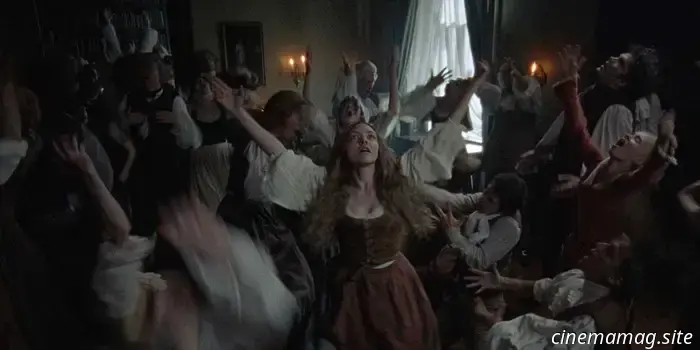
Venice Review: Amanda Seyfried Delivers Her Best Performance in Mona Fastvold’s The Testament of Ann Lee.
In The Testament of Ann Lee, Amanda Seyfried delivers the best performance of her career. The actress passionately engages with a collection of updated 18th-century hymns composed by Daniel Blumberg, who recently gained recognition after winning an Oscar for The Brutalist earlier this year. Directed by Mona Fastvold and co-written with her partner Brady Corbet, Testament feels closely connected to their prior film, making it easy to envision Seyfried’s Lee—the real founder of the Shaker movement who believed she was the second coming—coexisting in the same textured, grainy, 70mm frame as Adrien Brody’s László Tóth, even if they’re separated by a century.
The disheveled architect would definitely appreciate the breadth and vision of Testament's ambitions. The narrative opens in Manchester, where a young Lee is employed in cotton mills, rising within a local Quaker sect led by a stoic Stacy Martin. She marries a blacksmith named Abraham (played by the brooding Christopher Abbott) and experiences a transformative vision of God after the loss of four infants. In response to her tragedies, Lee establishes a splinter religion where she becomes "Mother," sex is prohibited (though the long-term viability of this is not fully addressed), and deliverance and joy come through movement and song. Her charisma helps increase her followers, leading to a journey to the New World, although some are less excited about the venture when self-canonization is at stake.
As one among many who recalls The Brutalist's Venice press screening with the fondness of a pagan farmer reminiscing about dawn, no film this year has lingered in my thoughts quite like Testament. Yet despite its impressive visuals and striking scenes, I left the theater slightly skeptical. Unyielding zealots, regardless of their reasoning, don’t always make for compelling protagonists; even with Seyfried's exceptional voice and energy, the music begins to falter. Fastvold intentionally frames Lee as a survivor, yet her primary flaw seems to be excessive kindness, which I find insufficient to generate meaningful drama. The film portrays her sympathetically; without any hint of malevolence or arrogant folly, Ann Lee loses its significant initial spark.
The responsibility of shifting dramatic tones rests with a strong supporting cast, but none are given the opportunity to elevate their roles beyond mere archetypes. The storytelling primarily relies on the Testament itself, narrated in a detached manner similar to the Fastvold- and Corbet-written Vox Lux, yet lacking the biting irony that characterized that film. Early signs of conflict emerge through Ann’s brother (played effectively by Lewis Pullman), who expresses incestuous feelings, and a possible challenging romantic interest represented by Thomasin McKenzie’s Mary. However, these plotlines do not develop. Despite her initial struggles, Lee’s life journey—from birth to death—is relatively free of conflict, particularly when compared to other similarly grand epics. It all feels a bit too respectful.
Regardless of whether you agree with this assessment, there are still numerous reasons to watch it, ideally in a big, loud format. The visuals, captured in 70mm by seasoned cinematographer William Rexer, feature compositions and lighting akin to the Dutch Golden Age. The musical sequences, though at times as repetitive as those in Annette, strike a captivating balance between the surreal and the narrative-driven. Additionally, the characters' movements are fluid, explosive, and at times thrillingly original. It’s nearly enough to inspire belief.
The Testament of Ann Lee debuted at the 2025 Venice Film Festival.
Other articles
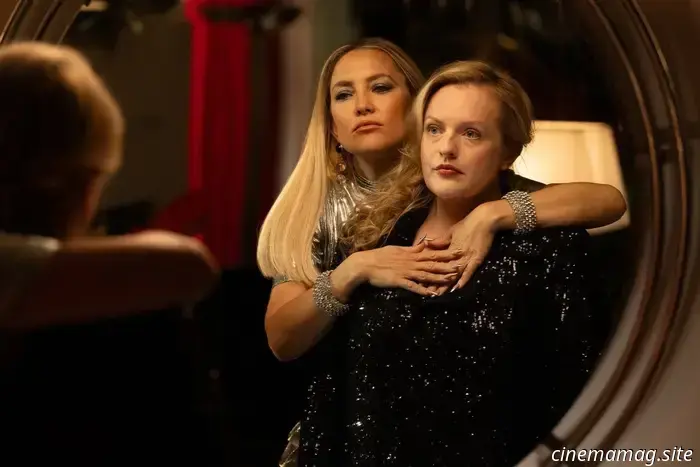 Trailer for the wellness horror-comedy "Shell," featuring Elisabeth Moss and Kate Hudson.
Paramount has released a trailer and images for Shell, the forthcoming dark comedy horror-thriller directed by Max Minghella (Teen Spirit). Featuring elements reminiscent of The Substance, Elisabeth Moss portrays Samantha, a struggling actress seeking to revive her previously successful career, who gets entangled in the glamorous life of Zoe (Kate [...]
Trailer for the wellness horror-comedy "Shell," featuring Elisabeth Moss and Kate Hudson.
Paramount has released a trailer and images for Shell, the forthcoming dark comedy horror-thriller directed by Max Minghella (Teen Spirit). Featuring elements reminiscent of The Substance, Elisabeth Moss portrays Samantha, a struggling actress seeking to revive her previously successful career, who gets entangled in the glamorous life of Zoe (Kate [...]
 The LEGO Star Wars Ultimate Collector Series Death Star set has been officially unveiled.
LEGO has introduced its largest LEGO Star Wars set to date, the Ultimate Collector Series Death Star, comprising 9,023 pieces. This set enables builders to replicate memorable scenes from Star Wars: Episode IV – A New Hope (and Return of the Jedi) and includes 36 minifigures to help animate these famous moments. The set is available […]
The LEGO Star Wars Ultimate Collector Series Death Star set has been officially unveiled.
LEGO has introduced its largest LEGO Star Wars set to date, the Ultimate Collector Series Death Star, comprising 9,023 pieces. This set enables builders to replicate memorable scenes from Star Wars: Episode IV – A New Hope (and Return of the Jedi) and includes 36 minifigures to help animate these famous moments. The set is available […]
 TRON: Ares releases a new IMAX trailer and poster as ticket sales begin.
As tickets are now available for TRON: Ares, Disney has released a new trailer and an IMAX poster for the sci-fi action adventure. Additionally, they have included a featurette in which director Joachim Rønning talks about filming the movie, featuring interviews with cast members Jared Leto, Greta Lee, Jeff Bridges, Gillian Anderson, and Jodie Turner-Smith; check it out […]
TRON: Ares releases a new IMAX trailer and poster as ticket sales begin.
As tickets are now available for TRON: Ares, Disney has released a new trailer and an IMAX poster for the sci-fi action adventure. Additionally, they have included a featurette in which director Joachim Rønning talks about filming the movie, featuring interviews with cast members Jared Leto, Greta Lee, Jeff Bridges, Gillian Anderson, and Jodie Turner-Smith; check it out […]
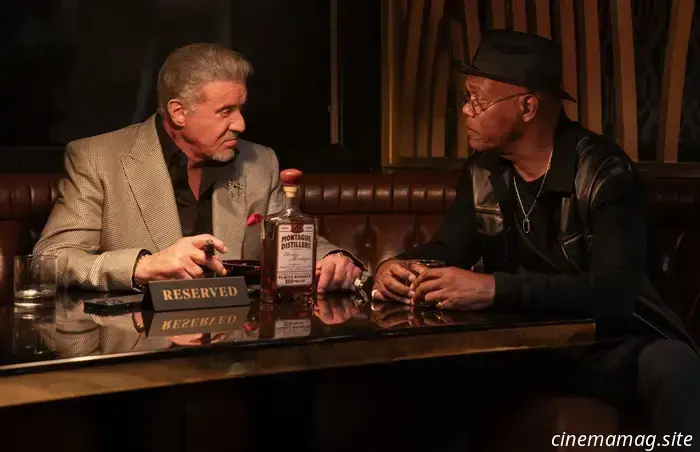 The trailer for season 3 of Tulsa King features Sylvester Stallone alongside Samuel L. Jackson.
With fewer than three weeks remaining until the return of Tulsa King for its third season, Paramount+ has released a new trailer for the highly regarded crime drama series. In this season, Sylvester Stallone's character, Dwight 'The General' Manfredi, is seen striving to safeguard both his family and his empire while confronting his most perilous opponent to date. Season three features Sylvester Stallone, […]
The trailer for season 3 of Tulsa King features Sylvester Stallone alongside Samuel L. Jackson.
With fewer than three weeks remaining until the return of Tulsa King for its third season, Paramount+ has released a new trailer for the highly regarded crime drama series. In this season, Sylvester Stallone's character, Dwight 'The General' Manfredi, is seen striving to safeguard both his family and his empire while confronting his most perilous opponent to date. Season three features Sylvester Stallone, […]
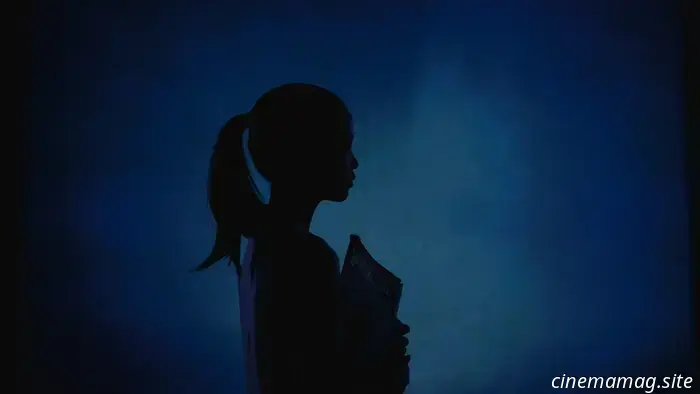 NYC Weekend Watch: Yi Yi, When the Levees Broke, Dune in 70mm, Four Nights of a Dreamer, and More
NYC Weekend Watch is our weekly compilation of repertory events. Film at Lincoln Center is featuring a new 4K restoration of Edward Yang's Yi Yi; Shinji Sōmai’s The Friends (check out our trailer launch) along with In the Mood for Love and In the Mood for Love 2001 are also screenings. The Museum of Modern Art is hosting a series that explores New Orleans before, during, and after Hurricane Katrina, which includes several films.
NYC Weekend Watch: Yi Yi, When the Levees Broke, Dune in 70mm, Four Nights of a Dreamer, and More
NYC Weekend Watch is our weekly compilation of repertory events. Film at Lincoln Center is featuring a new 4K restoration of Edward Yang's Yi Yi; Shinji Sōmai’s The Friends (check out our trailer launch) along with In the Mood for Love and In the Mood for Love 2001 are also screenings. The Museum of Modern Art is hosting a series that explores New Orleans before, during, and after Hurricane Katrina, which includes several films.
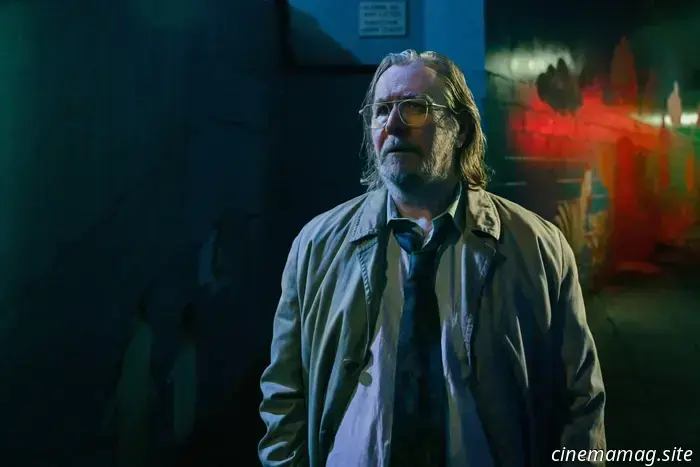 Apple TV+ has released the trailer for season 5 of Slow Horses.
With less than three weeks remaining until the return of Slow Horses, Apple TV+ has released a trailer for the fifth season of the highly regarded espionage drama, which is inspired by the novel London Rules from Mick Herron’s acclaimed “Slough House” series. The cast features Gary Oldman, Kristin Scott Thomas, Jack Lowden, Saskia Reeves, Rosalind […]
Apple TV+ has released the trailer for season 5 of Slow Horses.
With less than three weeks remaining until the return of Slow Horses, Apple TV+ has released a trailer for the fifth season of the highly regarded espionage drama, which is inspired by the novel London Rules from Mick Herron’s acclaimed “Slough House” series. The cast features Gary Oldman, Kristin Scott Thomas, Jack Lowden, Saskia Reeves, Rosalind […]
Venice Review: Amanda Seyfried Delivers Her Best Performance in Mona Fastvold’s The Testament of Ann Lee.
In The Testament of Ann Lee, Amanda Seyfried delivers the best performance of her career. The actress trembles, resonates, and wails through a range of 18th-century hymns reimagined by Daniel Blumberg, the composer who voiced his appreciation for London's Cafe Oto (another hub of unusual sounds) following his unexpected yet well-deserved Oscar win.
